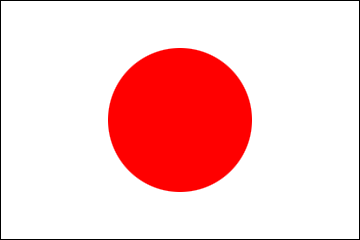California and Japan: An Overview
2020/1/30
Basic Information
| Japan | California | |
| Population (2018) | 126,590,000 | 39,536,653 |
| Area | 145,932 mi2 | 163,695 mi2 |
| GDP (2018) | $5 trillion (3rd largest in the world) |
$3.2 trillion (5th largest in the world) |
History
- The first official Japanese delegation to US arrived in San Francisco (Mar. 17, 1860)
- One of the earliest known Japanese settlements in North America was located in Gold Hill (Wakamatsu Tea and Silk Firm Colony, Jun. 8, 1869)
- The first Japanese foreign mission in the world was established in San Francisco (Aug. 25, 1870)
- The Treaty of Peace with Japan was signed in the San Francisco Opera House (Sep. 8, 1951)
- The Treaty of Mutual Cooperation and Security between the US and Japan was signed in Presidio Golden Gate Club, San Francisco (Sep. 8, 1951)
Japanese Community in California
- Japanese Citizens
134,778 (as of Oct. 1, 2018)
Northern California- 42,671; Southern California- 92,107
- Japanese Americans
467,222 (2017)
Within this Consulate's jurisdiction-188,828
California has the last three Japantowns in the US (SF, San Jose, LA)
A number of Japanese American communities are very active. The Japanese American Citizens League has their headquarters in San Francisco. 90 out of 113 national chapters are in California.
Educational Exchange
- Exchange Students
Over 5,000 Japanese students are studying in California.
217 at UC Davis, 197 at Stanford University, 133 at UC Berkeley (January 2020)
Total number of Japanese students in US is 18,780 (1.5% drop from 2016; 1.7% of total international students, 8th largest group by country of origin) (2016/2017) - JET (Japan Exchange and Teaching) Program
Since 1987, about 200 Californians have come to Japan each year to teach and promote international exchange on a local level between Japan and other nations.
Over 2,800 alumni are registered in the JET Alumni Association of Northern California, which is the largest JET alumni group in the world. - Exchange Student Invitation Programs Hosted by the Government of Japan
The Japanese Government has hosted its Exchange Student Invitation Program since 1954.
5-6 students on average are sent to Japan every year. - California-Japan Scholars Program
The Program commenced in 1997 and is dictated by California Education Code 48054 and AB 2902.
Mutual exchanges are undertaken on a biennial basis between Elk Grove School District and Osaka Prefecture. Approximately 850 students in California and Osaka Prefecture have participated. - California Offices of Japanese Universities
Japanese university institutions have active offices in California, including Osaka University and Waseda University.
Intergovernmental Exchange
- Legislative Exchange Program
The California State Senate has ran a Legislative Exchange Program since 1996 and has sent a total of 50 legislators in 18 delegations to Japan. - Sister State and Sister City Relationships
California has a sister state relationship with Osaka Prefecture (signed by Governors Wilson and Nakagawa on November 15, 1994).
California has over 100 sister city relationships with Japan. San Jose-Okayama is among the oldest sister city relationship in California (1957). Crescent City/Del Norte County-Rikuzentakata is the newest relationship (April 16, 2018). - Japan-California Parliamentary Friendship League
The Japan-California Parliamentary Friendship League, established in 2014 by members of the Upper House of the Japanese Diet, have made multiple trips, including the most recent trip in January 2020, to California to meet with federal and state legislators, the Governor and other government officials. California state legislators also made reciprocal visits to Japan in March 2015, July 2017, and April 2019. - Memorandum of Cooperation
In September 2014, a “Memorandum of Cooperation on Climate Change, Renewable Energy, Trade and Investment, Vehicles, High-Speed Rail, and Water” was signed between California and Japan. It was renewed in September 2016. - Prime Minister’s Visit to California
In late April 2015, Prime Minister Abe visited the Bay Area to meet and exchange opinions with Silicon Valley leaders and Governor Brown. He continued his tour by visiting Los Angeles for an economic forum and meeting with the local Japanese American community.

